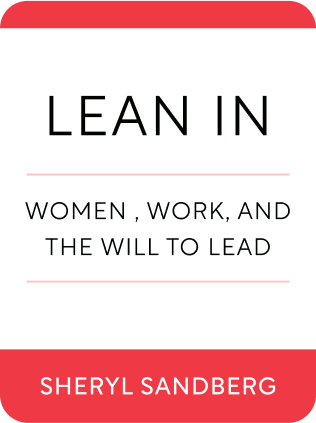

This article is an excerpt from the Shortform book guide to "Lean In" by Sheryl Sandberg. Shortform has the world's best summaries and analyses of books you should be reading.
Like this article? Sign up for a free trial here .
How do you balance motherhood and career? Do you think you can strike a perfect balance between your personal and professional life?
“Having it all” —a perfect balance of a rewarding career, great marriage, and happy motherhood—is a myth that women have been taught to believe is possible. You can pursue a professional life and a personal life, but it won’t be perfect and it will require compromises and sacrifices every day—whether you are working by choice or necessity.
While there’s no perfection possible when it comes to motherhood and career, you can still pursue both by making some adjustments.
The Myth of “Having It All”
Women with careers are constantly get asked, “How do you juggle it all”? This question implies, “You have to be messing something up,” feeding on women’s feelings of guilt and inadequacy.
When women feel they are not achieving perfection at home and work, they may end up leaving the workforce. Trying to do it all perfectly is a recipe for disappointment.
A better approach is to identify the real priorities at home and work. Be a perfectionist only in things that demand it, and for the rest, aim for “sustainable and fulfilling” instead of “perfection.”
There is certainly no perfection possible in parenting. You can’t prepare for its constant, surprising challenges and variables. Facebook has a prominent sign that offers great advice for moms in and out of the workforce: “Done is better than perfect.”
Set Limits for Yourself at Work
It’s a woman’s responsibility to set limits for hours spent at work. In fact, long-term success in the workforce often depends on not meeting every demand and taking on every task. Burnout is the number one reason good employees leave a challenging job.
Often, no one is demanding a woman work the schedule she’s taken on; she puts pressure on herself because she fears losing respect, prestige and even her job. Sandberg knows this dilemma intimately. She planned to take three months off when her son was born, but found herself unable to “unplug” for fear of missing out, being replaced and ultimately not being needed at work. Ultimately, she felt she let herself and her baby down by not being fully present during this time.
As Sandberg’s baby grew, she realized she had to set her own schedule, make priority changes, and stick to them. She set reasonable work hours in the office and became more efficient, maximizing every minute and cutting unnecessary meetings. She found ways to do more work at home after spending time with her kids.
This dilemma cropped up again when she moved to Facebook and needed to fit in with its “night owl” culture and the demands of a startup. She began missing more and more time with her kids but once again realized it was up to her to set limits. She began forcing herself to leave the office at 5:30 and regained her balance.
The Workplace Doesn’t Always Make Setting Limits Easy
Setting and keeping limits for yourself at work is hard; the workplace is more demanding than ever. Moms don’t want to be perceived as less dedicated to their jobs, so they overwork to overcompensate the perception.
Mothers and fathers alike are wary of taking advantage of flextime arrangements out of fear they’ll be penalized. “Face time” in the office is still seen as important. Data shows this to be true: employees who take advantage of flextime are seen as less dedicated and penalized.
These perceptions need to change. Data suggests working from home might actually be more productive, and technology allows you to do much more at home. (But technology is a double-edged sword as it extends the workday; we have to be aware and set limits at home.)
As more companies move toward flexible policies, the “face time” perception will be replaced by a focus on results.
The Intensive Mothering Challenge
Motherhood demands have ramped up, adding to the pressure working moms feel. In the prior generation, moms were available but not intensively present. For example, in 1975 they spent about 11 hours per week in primary care. In 2011 that number was 17 hours for stay-at-home moms and 11 for working moms.
So even though working moms spend as much time with their kids as stay-at-home moms used to, it’s no longer considered good enough. Sociologists call this elevated emphasis on time spent with children “intensive mothering,” a phenomenon that makes moms who work feel like failures in comparison to stay-at-home moms.
Sandberg also felt this guilt, so she relied on data to ease her mind: studies comparing exclusive maternal care vs. child care showed kids had no gap in cognitive skills, social skills and ability to maintain and build relationships. “Exclusive maternal care” was not related to any better or worse outcomes for kids.
Make the Best Choices You Can
Maybe women can’t strike a perfect balance between motherhood and career, but they can do what’s most important for them and their families. Success is making the best choices we can and accepting them. Sharing struggles authentically helps other women because they can see no one is perfect and everyone is just trying to do their best.

———End of Preview———
Like what you just read? Read the rest of the world's best book summary and analysis of Sheryl Sandberg's "Lean In" at Shortform .
Here's what you'll find in our full Lean In summary :
- How professional, personal, and societal hurdles are holding women back
- Why you need to commit to your career with risks and ambition
- How your career is more like a jungle gym than a ladder






